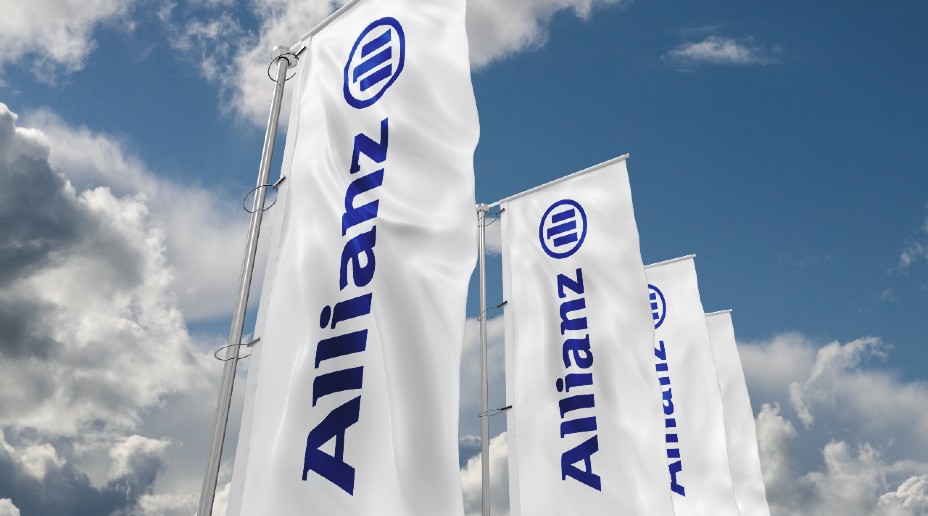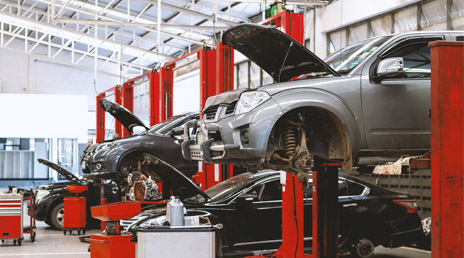Sustainable claims. I’m Head of Claims Supply & Experts at Allianz, with responsibility for all elements of our claims supply chain including relationships with our key strategic partners and providers. As part of this, I’m at the frontline of our sustainable claims initiatives.
Why is it important for insurers to make claims sustainable?
Sustainability is a significant issue for everyone. At Allianz, we’re acutely aware of the footprint and responsibility that comes with being a huge global organisation. As a result, there’s a huge emphasis across the business on making insurance more sustainable generally.
Sustainable claims is a big part of that. By using external suppliers with more sustainable ways of working, we reduce waste, which is good for the environment.
It’s also something that customers want. The landscape has changed considerably since I started at Allianz, with societal attitudes to sustainability evolving significantly. Knowing that their insurer is doing everything it can to be sustainable is important.
In addition, our sustainable claims initiatives are win-win. Claims can be settled faster, at a lower cost and, in some cases, even help to reduce the risk of a future claim.
What makes a claim sustainable?
As well as the environmental benefits, to be truly sustainable, it must work for all parties – the insurer, the customer and the supply chain. It might sound a little trite but we tend to talk about the “three Ps” when it comes to sustainability – planet, people and profitability.
Firstly, it has to be good for the planet. Secondly, it needs to be appealing to the people involved: there needs to be a genuine demand or awareness of the product.
Finally, it needs to be profitable for all parties involved, right across the value chain. If we’re asking our approved repairers to source recycled parts instead of replacement parts from their usual provider, we need to ensure this works for them in order for them to become true advocates.
What sustainable claims initiatives are in place at Allianz?
What sustainable claims initiatives are in place at Allianz?
In the motor space, we’re about to launch a new initiative using green parts in motor repairs. These are undamaged, or only superficially damaged, components from end-of-life vehicles. In each case, the green part is carefully selected to ensure it appears and performs no differently to a new part.
We always think about sustainability when we appoint any external suppliers too. For example, we recently started a six-month pilot with a company called Plastic Surgeon. It’s a surface repair and restoration specialist, focusing on restoration before replacement and putting a strong emphasis on waste reduction.
How do these claims initiatives work?
What are the benefits for the customer and the broker?
How do these claims initiatives work?
What are the benefits for the customer and the broker?
All of the sustainability initiatives we’ve put in place are designed to complement our service – adding speed, reducing cost, or helping the customer to avoid making a claim in the future.
As an example, by using flood-resilient materials in a property that has been flooded, it can make a significant difference if it suffers another flood. As well as helping to limit the damage, it should be easier to clean up and dry out the building afterwards. When a customer’s already suffered the disruption and emotional upset that a flood can cause, knowing their property is more resilient can give them considerable reassurance.
Similarly, in motor, green parts offer significant benefits to customers. Having access to a large inventory of domestically recycled parts can significantly reduce repair times, especially when you consider a large proportion of the replacement parts for the UK Car Parc are traditionally sourced from continental Europe. This becomes even more important when you consider the uncertainty of Brexit and its potential effect on the European supply chain.
As well as cutting the time it takes to repair a vehicle, there’s also a cost saving. Green parts are lower cost, which can mean lower claims costs and lower premiums. It can also mean that fewer vehicles are written off.
And these benefits are good for brokers too. If their customers enjoy better service, it means they’ll also have a better experience.
Are green parts as good as new ones? When would a new part be used rather than a green part?
We’ll only use green parts to replace components which aren’t safety-critical and they’re always sourced from an equivalent ‘donor’ vehicle that is no older than the vehicle that is being repaired. Through our partnership with the largest vehicle salvage and recycling firm in the UK, all green parts are covered by a ‘life in ownership warranty. We can also trace every green part back to its donor vehicle.
If there was any safety implication, we would always use a new part. Neither the safety nor quality of the repair can be compromised if the solution is to be considered truly sustainable.

Have customer – and broker – attitudes to sustainable claims changed?
Massively. Recycled parts aren’t new in themselves – they’ve notionally been available for years. The last time Allianz looked into using them was back in 2008 but, as sustainability wasn’t really a major concern among consumers, the initiative failed to get a lot of traction.
Ten years on and public awareness of issues such as climate change and plastic use have increased significantly. Our customers and brokers are now much more receptive to the idea of sustainable claims and can see the benefits it brings.
For instance, we recently commissioned some independent research among motorists into motor repairs, which found that the majority (69%) would choose a green replacement part. Of these, more than three quarters (77%) said this decision was driven by their desire to protect the environment.
Given this shift in attitude, we’re confident that this is the right time to bring these issues back to the fore and give customers the opportunity to be more sustainable.
What should brokers tell customers if they’re unsure about a sustainable claim?
We do still have some work to do to educate on the benefits of sustainable options and show our customers that the ‘green’ option could actually result in better – not worse – service. Our consumer research found that 24% still needed to be persuaded that a green part was a good option, with a further 6% adamant that it wasn’t something they’d consider.
By continually demonstrating the benefits in real-life claims situations, we should give brokers the confidence to become advocates of sustainable solutions.
What work is the insurance industry doing to push sustainable claims?
People across the industry and insurance press are talking about environmental issues more than ever and that’s really helped to stimulate dialogue and raise awareness.
Bodies such as ClimateWise, which is a global insurance industry collaboration that can count both Allianz and the ABI among its founding members, are also developing tools to help insurers understand how they can implement sustainability into their proposition.
What initiatives might we see in the future?
We’re constantly exploring increasingly innovative solutions that can make our claims propositions more sustainable. Anything that can help to minimise avoidable waste, whether through improved recycling or advances in restorative repair methods, is up for consideration.
We’re also keen to ensure that sustainability goes beyond the pure environmental concern and touches on economic and social issues too. This takes many forms but includes supporting social enterprise across our supply chains and ensuring that effective corporate social responsibility is embedded into our organisation.
We’ve already made good progress, but there’s always more that can be done


































